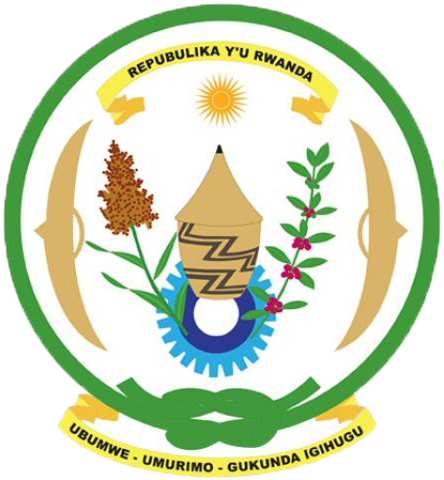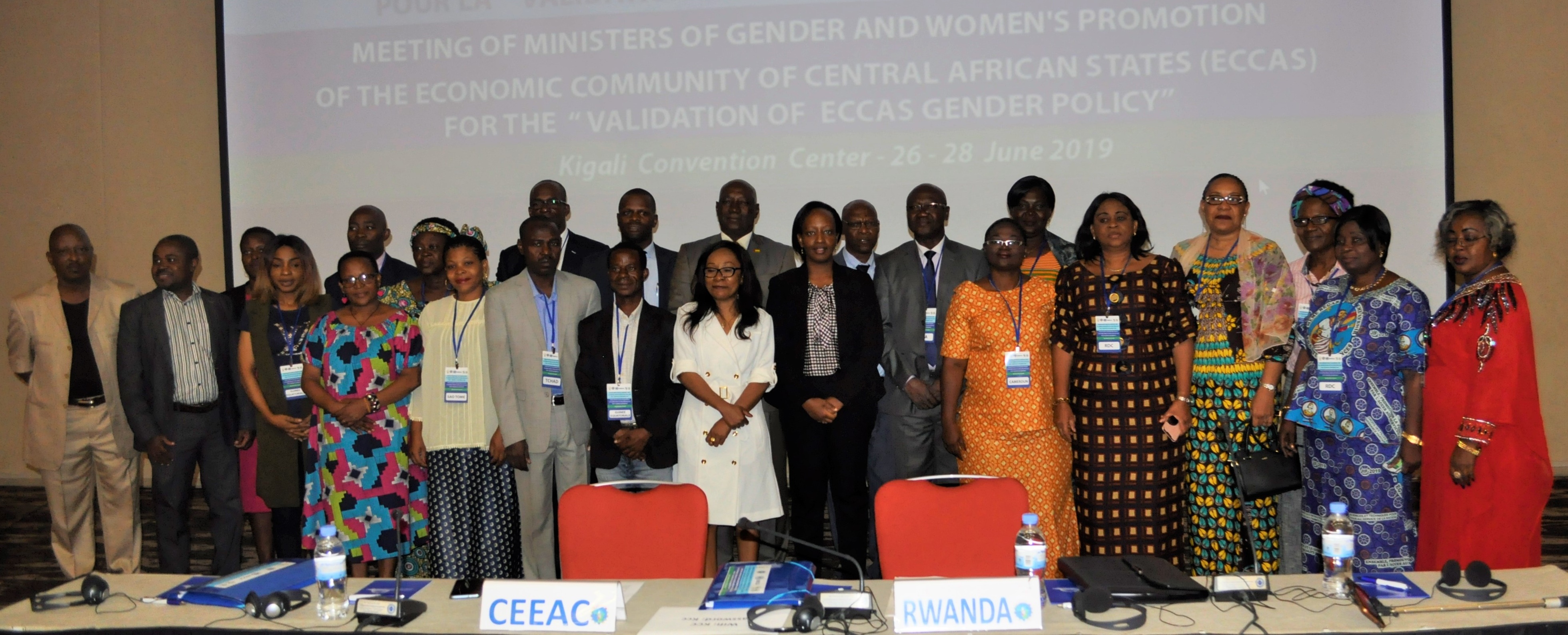Kigali 26 June 2019-This meeting kicked off on Wednesday, 26 June 2019 and will run until Friday 28 June. On the first day, experts from the Economic Community of Central African States met to discuss and review the Gender policy of the Central African member states.
While officiating the meeting of experts, The Permanent Secretary in The Ministry of Gender and Family Promotion Mrs. Umutoni Gatsinzi Nadine applauded the ECCAS secretariat for choosing Rwanda to host this important meeting.
Mrs. Umutoni also thanked the ECCAS member states for paying a particular attention to the principle of equality between men and women in order to improve the inclusion of the economic, social and cultural situation of men and member states.
‘Women represent half of the world population and of course the African population. As a result, women are a dominant part of society and must be at the center of all initiatives, policies and programs.’ Underlined the Permanent Secretary.
During her remarks, she added that the good work of ECCAS to set up a gender policy of the community, will allow Member States, to rationalize and integrate the gender principle in all interventions and create an opportunity to learn and support each other to achieve gender equality in the respective countries as well as the Sustainable Development Goals.
While giving an example of how Rwanda achieved gender parity across different sectors, the Permanent Secretary highlighted that the country has put the principle of gender equality and women empowerment at the heart of the national development agenda and this was attained as a result of the country's leadership that creates a gender-conducive environment, that opens up opportunities for women who were historically discriminated.
As a result of good policies, the representation of women in decision-making positions has increased considerably. The rate of women's representation in Parliament is currently 61%, with 50% in the cabinet and 50% in the judiciary. In the education, gender parity in primary and secondary schools has been reached. The enrollment of girls in primary school reached 97.4% in 2015, while girls' enrollment in technical and vocational schools and higher learning institutions was 41.8% and 42.4% respectively. In a bid to tackle GBV, Rwanda has set up "Isange One Stop Center", a model of response to victims and survivors of GBV, which offers a holistic response to victims in a single place in order to minimize re-victimization, loss of evidence and justice.
Mrs. Isabelle Boukinda Nzaou, the Head of the Gender Unit at ECCAS who also represented the Secretary General, hailed Rwanda’s Leadership, especially President Paul Kagame, for his gender-sensitive work and enabling women to fully exercise their role in the political and economic development.
‘ECCAS Member States should accelerate the implementation of all instruments and policies related to gender and the promotion of women's rights and align with the African Union Agenda 2063 and 2030 Agenda of the United Nations. –emphasized Mrs. Boukinda
On Thursday, experts from ECCAS will continue to review the gender policy before a meeting of Ministers in Charge of Gender and Women Empowerment of the Economic Community of Central African member States gather to validate it.
The Economic Community of Central African States (ECCAS) is composed by Rwanda, Angola, Burundi, Cameroon, Congo, Gabon, Equatorial Guinea, Central African Republic, the Democratic Republic of Congo, the Democratic Republic of Sao Tome and Principe and Tchad.



